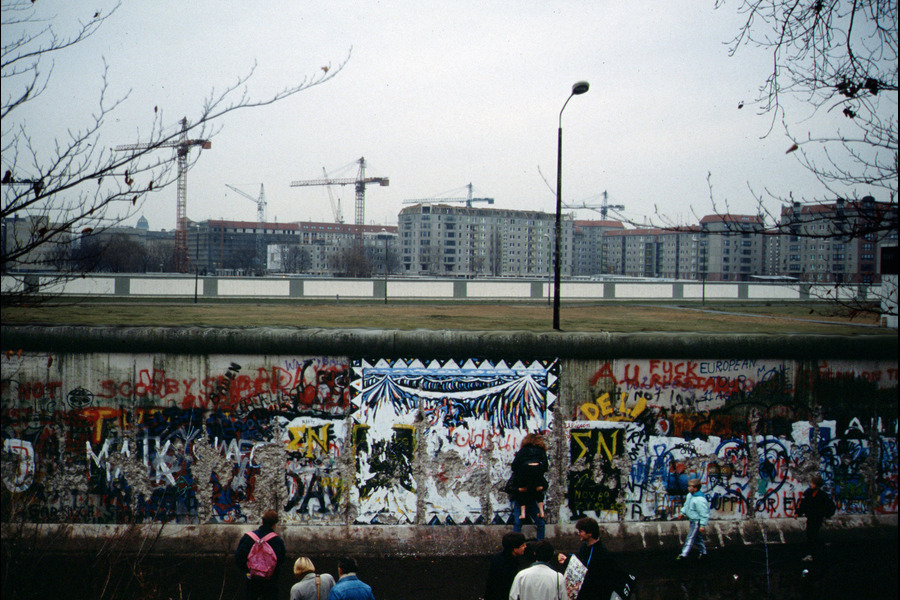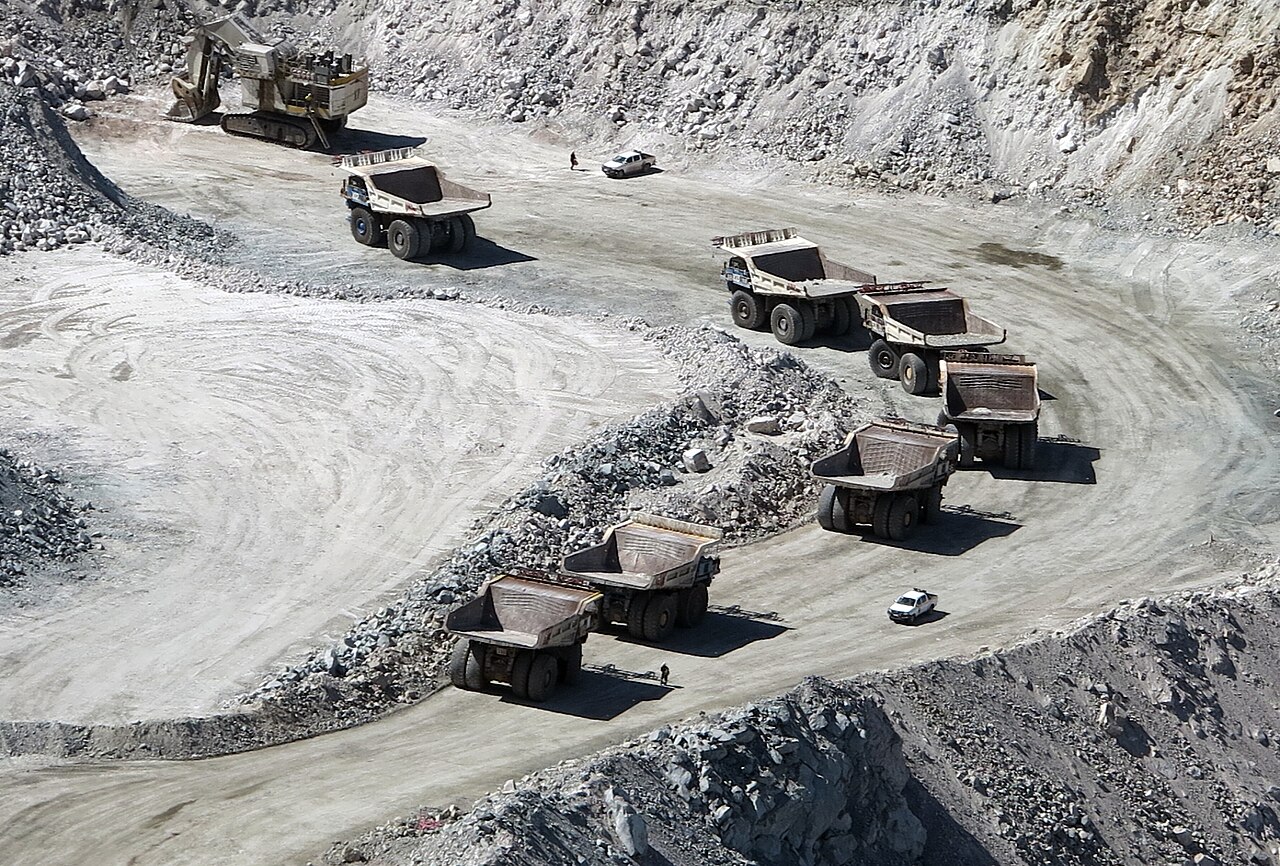Published by The Lawfare Institute
in Cooperation With

Business as Usual?
Following the failure to reach an agreement to limit production earlier this year in Doha, OPEC will meet Thursday in Vienna. Though the price of oil has risen in recent weeks, the oversupply in global markets remains largely unaddressed, and much of the recent rally can be traced to unplanned outages or declines in production rather than a structural shift. Meanwhile, many Middle Eastern suppliers plan to increase supplies in the coming months, and additional exports could put a damper on the recent (and slight) uptick in oil prices.
While many are decrying more of the same from the oil cartel, the Wall Street Journal reflects changes in the oil market following fateful November 2014 decision to abandon price for market share. Absent OPEC guidance, the oil market has become more volatile, resulting in price swings that Citigroup refers to as the new normal. The real question is whether a link will emerge between volatile prices and volatile politics, and if this too could become a new normal.
While the meeting will likely cover coordination and unification of member countries’ policies in the attempts to stabilize the oil market, Bloomberg reports that the group is largely expected to stick to the Saudi’s strategy of pursuing market share. As Jim Krane points out in Foreign Affairs, the members are taking cues from Saudi Arabia, who announced an increase in production earlier this month following the replacement of long term energy minister (and production freeze supporter) Ali Naimi.
However, while Saudi may be ramping up, other producers are on the rocks.
In a possible effort to keep the Libya oil sector afloat, a French firm has inked a potential $500 million deal to upgrade oil facilities in the country. This comes amid fighting between the Petroleum Facilities Guard (PFG), the group of fighters which controls much of the Libya’s oil infrastructure, and the Islamic State over several towns east of the terrorist organization’s Sirte stronghold. As Al Jazeera reports, the PFG recently declared allegiance to the UN-backed government, and are battling the terrorist organization for control of key oil installations.
As Lydia Sizer and Jason Pack write in Foreign Affairs, the terrorist organization is using oil as a means of destabilization by disrupting production and depriving the new government of much needed revenue (a tactic they borrowed from the PFG, who previously used control of oil facilities to deprive the Islamist General National Congress of funds). However, while the PFG wanted to control and maintain the resources for their own gain, the Islamic State is pursuing a strategy more closely akin to scorched earth—damaging or destroying as much infrastructure as it can to prevent others from using the oil facilities.
Scare Tactics
Militants in the Niger Delta appear to have taken the same tack.
Writing in Oil Price, Charles Kennedy reports increased attacks on oil and gas infrastructure in Nigeria have caused oil production to plummet. Last week, a group known as the Niger Delta Avengers attacked the electricity supply to the Escravos oil terminal operated by Chevron, forcing the company to suspend on-shore operations and temporarily close the facility, which exports 160,000 barrels per day. Emerging from relative obscurity in recent weeks, the group has claimed responsibility for a spate of attacks, including bombing pipelines belonging to the Nigerian National Petroleum Company.
The fall in production translates to falling state revenues and thus dwindling funds to counter threats both in the Niger Delta and Boko Haram. Their goal is to shut down oil production in the country completely, a situation which could be disastrous for the Nigerian government—and an outcome that may become increasingly likely.
The Avengers have called on all oil companies to leave the country by May 31, warning via twitter that “something big is about to happen and it will shock the whole world.” For more insight into the group’s motives, The News Nigeria published their manifesto, in which the group warns oil companies that the current attacks are “just the beginning”. Among the group’s grievances are a list of wells they allege were allocated to wealthy individuals in northern Nigeria. The group similarly issued a two week ultimatum that operations at these locations be shut down and staff evacuated.
If the ultimatum is ignored? The threat of bloodshed and more bombings.
Between the attacks, falling oil production, and fuel and electricity shortages, President Buhari’s first year in office has hardly been a cakewalk. In a television broadcast commemorating the one-year anniversary, Bloomberg reports Buhari tried to convince listeners that despite appearances, things are under control. He also explained he is pursuing a renewed and revised amnesty program and talks with regional leaders in the Niger Delta (talks which the Avengers called a fraud).
While Nigeria may be an extreme case, other oil producers are suffering headaches of their own.
In Algeria, while the regime largely weathered the Arab Spring and the ensuing years of regional instability, the collapse in oil prices may yet cause problems. Meanwhile, The Oxford Institute for Energy Studies, in a report entitled Algerian Gas: Troubling Trends, Troubled Policy, points out that a declining gas sector could contribute to Algeria’s dilemma, as declining domestic production in tandem with rising domestic demand could mean less gas for export—and thus less revenue.
Oil and gas account for nearly all of Algeria’s exports, 97 percent, and comprise over half, 60 percent, of state revenue. As Francisco Serrano writes in Foreign Affairs, the confluence of falling revenue, growing frustration over corruption and mismanagement, and questions about the future of the country’s political leadership leave Algeria “on the brink.”
The question is, on the brink of what?
What to Watch
Mark Your Calendars
The clock is ticking to July 31, when the current EU sanctions against Russia, including those on the energy (oil) sector, will expire. And with just over a month to go before the expiration (or renewal), there are already rumblings that support for sanctions is waning in some quarters and certain EU member states are eager to return to business as usual.
However, not everyone is hoping for a return to the Russian embrace. Politico writes that many member states are concerned by EU Commission President Jean-Claude Juncker's upcoming trip to Russia in mid-June, as it could send mixed messages and undermine already fragile support for sanctions. While the potential impact of the Juncker trip is muddled, President Putin’s recent visit to Greece provided a much clearer picture. During his visit, Putin discussed energy investments and was accompanied by the heads of Gazprom and Rosneft (as well as Russian Railways). In a joint press conference with President Putin, Greek Prime Minister Alex Tsipras called the sanctions “unproductive”, leaving no question as to whether the Greek government prefers renewed ties or sanctions.
While some may dismiss Tsipras’ comments on the grounds that Russian influence has historically been strong in Greece, a country which also lacks the political heft to bring the rest of the EU along with it, der Spiegel reports that Germany too may be losing its stomach for sanctions. This comes as Germany has suffered much criticism from central and eastern European neighbors over its support (or rather its claim of political neutrality) for Nord Stream II, which would expand its existing gas relationship with Russia.
However, not all are looking to expand on the relationship. Bloomberg reports that Poland is attempting to replace all Russian-supplied gas with alternative supplies, including from the U.S., while Reuters reports that Poland’s Deputy Foreign Minister says sanctions must not be lifted until the Minsk agreement is fully implemented.
Meanwhile, in the Eastern Mediterranean...
Israel’s newly confirmed defense minister, Avigdor Lieberman, has raised eyebrows both for his strong ties to Russia and strong support for the domestic natural gas industry. Natural Gas Europe speculates that these two affinities, in combination with the difficulties that have thus far beset natural gas development in Israel could pave the way for a gas deal with Russia. Offshore gas projects in the Eastern Mediterranean off the coast of Israel as well as Cyprus are far from certain thanks to political, regulatory, and financial hurdles, including difficulties in securing export markets for the products. Russian involvement could help alleviate some of these issues—and stir up tensions with other regional stakeholders, namely Turkey.
While this outcome may be farfetched, its implications could be far reaching. As Charles Ellinas writes, “Would Russia surprise us all and gain an entry into Israeli gas development? Challenging, but if it does, it will be a game changer.”





